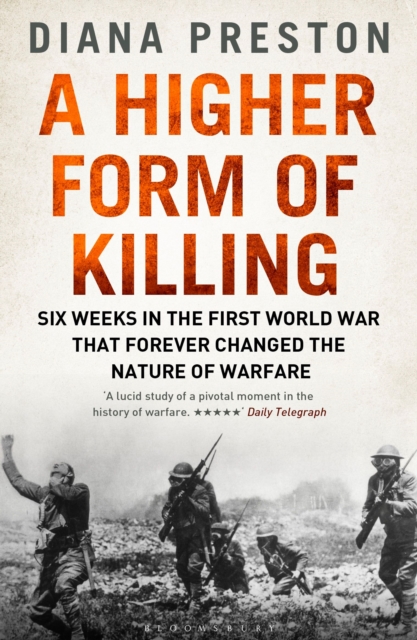
A Higher Form of Killing : Six Weeks in the First World War That Forever Changed the Nature of Warfare Paperback / softback
by Diana Preston
Paperback / softback
Description
_________________'A harrowing - and, in this era of drones, absolutely pertinent - look at the rapacious reaches of man's murderous imagination.' - starred review, Kirkus'A fascinating and chilling chronicle of weapons of mass destruction . . . Preston's eloquent and objective history of war is immensely exciting.' - Library Journal'Well-detailed, shattering . . . This is Preston at the top of her analytical form, offering fascinating modern parables on war, mortality and civilization.' - starred review, Publishers Weekly_________________Poison gas, the torpedo, the zeppelin - Diana Preston offers a startling new window onto World War I with her chronicle of the birth of weapons of mass destruction. Between April 22 and May 31, 1915, Western civilization was shocked.
World War I was already appalling in its brutality, but until then it had been fought on the battlefield and by rules long agreed by international convention.
Suddenly, those rules were abandoned. On April 22, at Ypres, German canisters spewed poison gas over French and Canadian soldiers in their trenches; on May 7, the German submarine U-20, without warning, torpedoed the passenger liner Lusitania; and on May 31, a German zeppelin began the first aerial bombardment of London.
Each of these actions violated rules of war carefully agreed to at the Hague Conventions of 1898 and 1907 which were deliberately breached by the German authorities in an attempt to spread terror and force the Allies to surrender.
While that failed, the psychological damage these attacks caused far outweighed the physical casualties. Celebrated historian Diana Preston links these events for the first time, revealing the dramatic stories behind them through the eyes of those who were there.
Placing the attacks in the context of the centuries-old debate over what constitutes "just war" and "civilized warfare," Preston shows how subsequently the other combatants felt the necessity to develop and use similar weapons.
Now, when such weapons of mass destruction are once again deployed and threatened, and terrorist atrocities abound in very different kinds of conflicts, the vivid story of their birth is of great relevance.
Information
-
Out of stock
- Format:Paperback / softback
- Pages:352 pages, 1 x 16pp B&W insert
- Publisher:Bloomsbury Publishing PLC
- Publication Date:19/05/2016
- Category:
- ISBN:9781408878224
Information
-
Out of stock
- Format:Paperback / softback
- Pages:352 pages, 1 x 16pp B&W insert
- Publisher:Bloomsbury Publishing PLC
- Publication Date:19/05/2016
- Category:
- ISBN:9781408878224






